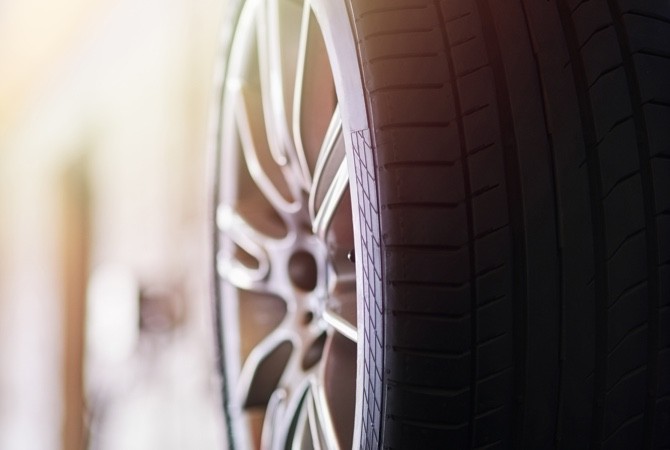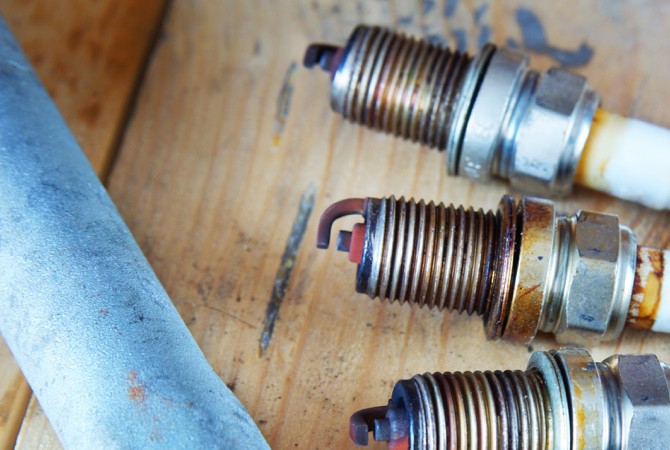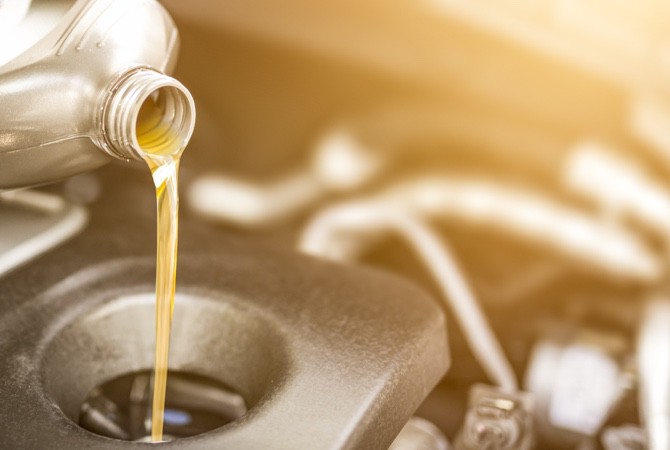Making time for car care
When does the car need to go in for an oil change? When was the last time the wiper blades were changed? When were the brakes were last serviced? You know that car maintenance is important, but between work, family and everything else that life throws at you, it can be hard to stay on top of everything.
Keeping up with basic car maintenance not only ensures that your vehicle is road ready but it can also prevent costly problems from developing. Read on to discover some parts that require basic maintenance and what you can do to keep each part in proper working order.
Tires

Responsible for delivering the traction and grip you need to travel, it’s easy to take your tires for granted. Driving on tires that are in top condition is key to staying safe on the road. If the tread of your tires is worn or bare, it can spell disaster. Not only will you have reduced traction when you need it most, but you’re at a higher risk of suffering a blown tire. Another issue to keep an eye on is the pressure of each tire. Under or over inflated tires both cause problems like premature wear and poor fuel mileage.
What you can do: Give your tires the attention they deserve and examine your tires on a regular basis for signs of excessive and/or uneven tread wear and bulges in the sidewalls. If you detect any abnormalities, replace the affected tire immediately and see your trusted mechanic as you may have other issues with your vehicle. Use a pressure gauge to check the tire pressure on a regular basis to ensure that all four tires are set to the manufacturer-recommended PSI. Also, consider rotating your tires every six months or 6,000-8,000 miles to promote even tread wear.
Spark plugs

A key component in the combustion process, your car’s spark plugs create a spark that fires the air/fuel mixture in the engine to generate the combustion that powers your vehicle. Over time, your vehicle’s spark plugs can become fouled or dirty which can diminish their performance. Driving with dirty or fouled spark plugs can lead to a drop in gas mileage, poor acceleration and trouble starting the vehicle.
What you can do: Have your spark plugs changed according to the manufacturer’s recommendation. (You can find the suggested maintenance schedule in your owner’s manual.) Also monitor your vehicle for any changes in performance. If you suspect that your spark plugs may be the culprit, you can check the spark plugs yourself by following these instructions (insert link to August article) or by having your trusted mechanic check out your vehicle.
Brake pads

You rely on your brakes to work every time you press down on the brake pedal. One of the most important safety systems on your vehicle, don’t ignore your brake pads – your safety and the safety of your passengers depend on it. Driving with thin and worn brake pads is extremely dangerous, as you won’t have full stopping power when you approach that stop sign or have to suddenly hit your brakes in an emergency situation.
What you can do: While driving, be aware of the performance of your brakes. Take note of how the brake pedal feels and listen for noises like grinding, growling or squealing. If the pedal feels soft or spongy or you hear any noises, it typically means that your brakes are in need of service. For more tips on checking your brake pads for wear, check out this article. If you suspect that your brake pads are in need of service, make an appointment with your mechanic right away.
Oil and oil filter

Your engine’s oil keeps everything lubricated and absorbs heat, while the oil filter removes dirt and contaminants from the motor oil, preventing any particles from reaching the engine. While today’s vehicles are capable of going longer between oil changes, don’t wait for your engine to fail; follow a routine maintenance program that includes regular oil level checks to keep your vehicle running smoothly.
What you can do: Whether you have the dealership or quick lube shop do it or if you take care of it yourself following these oil change instructions, changing your vehicle’s oil and oil filter is imperative to its performance. As time goes on, oil breaks down and the filter becomes dirty, leaving both less effective. Be sure to check your owner’s manual for the recommended mileage for oil changes.
Staying current on routine maintenance

Caring for your vehicle can seem daunting, but there are some easy things you can do to become an informed owner. Consult your owner’s manual for your vehicle’s recommended service schedule. Armed with this information, you’ll be able to keep up with routine maintenance.
To help you keep track, set reminders on your smartphone and once the service has been completed, write down what was done on a vehicle log. Many times, the owner’s manual has a vehicle log in the back; there are also a variety of smartphone apps available for tracking this important information.
Learn more about quality brake pads, find your car part, or find where to buy your auto part today.
The content contained in this article is for entertainment and informational purposes only and should not be used in lieu of seeking professional advice from a certified technician or mechanic. We encourage you to consult with a certified technician or mechanic if you have specific questions or concerns relating to any of the topics covered herein. Under no circumstances will we be liable for any loss or damage caused by your reliance on any content.